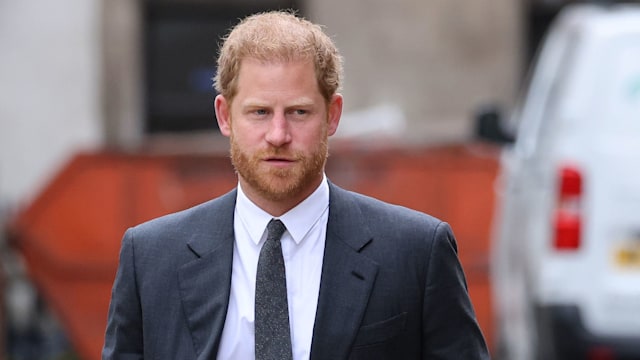The Duke of Sussex will appeal the High Court judgement announced on Wednesday over a decision to change the level of his personal security when visiting the UK.
A legal spokesperson for the Duke said: “The duke is not asking for preferential treatment, but for a fair and lawful application of Ravec’s own rules, ensuring that he receives the same consideration as others in accordance with Ravec’s own written policy.
“In February 2020, Ravec failed to apply its written policy to the Duke of Sussex and excluded him from a particular risk analysis. The duke’s case is that the so-called ‘bespoke process’ that applies to him is no substitute for that risk analysis.
“The Duke of Sussex hopes he will obtain justice from the Court of Appeal, and makes no further comment while the case is ongoing.”
Prince Harry, 39, took legal action against the Home Office over the February 2020 decision of the Executive Committee for the Protection of Royalty and Public Figures (Ravec) that he should receive a different degree of protection when in the country.
The Government said Harry's claim should be dismissed, arguing that Ravec – which falls under the Home Office’s remit – was entitled to conclude the duke’s protection should be “bespoke” and considered on a “case-by-case” basis.
In a ruling on Wednesday, retired High Court judge Sir Peter Lane rejected the duke’s case and concluded Ravec’s approach was not irrational nor procedurally unfair. In his 52-page partially redacted ruling, Sir Peter said Harry’s lawyers had taken “an inappropriate, formalist interpretation of the Ravec process”.
He added: “The ‘bespoke’ process devised for the claimant in the decision of 28 February 2020 was, and is, legally sound.”
Following the ruling, a Home Office spokesperson said: "We are pleased that the court has found in favour of the Government’s position in this case, and we are carefully considering our next steps. It would be inappropriate to comment further. The UK Government’s protective security system is rigorous and proportionate. It is our long-standing policy not to provide detailed information on those arrangements, as doing so could compromise their integrity and affect individuals’ security."
At a hearing in December, the Duke's legal team read out an excerpt from an emotional written witness statement in which Harry explained why he and his wife, Meghan Markle, felt they had to move to the US after stepping back as senior royals in 2020.
Harry said: "It was with great sadness for both of us that my wife and I felt forced to step back from this role and leave the country in 2020.
"The UK is my home. The UK is central to the heritage of my children and a place I want them to feel at home as much as where they live at the moment in the US. That cannot happen if it’s not possible to keep them safe when they are on UK soil.
"I cannot put my wife in danger like that and, given my experiences in life, I am reluctant to unnecessarily put myself in harm's way too."
Ravec has delegated responsibility from the Home Office over the provision of protective security arrangements for members of the royal family and others, with involvement from the Metropolitan Police, the Cabinet Office and the royal household.
Earlier this month, Harry settled the remaining parts of his phone hacking claim against Mirror Group Newspapers (MGN), publisher of the Daily Mirror.
The Duke sued MGN for damages, claiming journalists at its publications were linked to methods including phone hacking, so-called "blagging" – gaining information by deception – and use of private investigators for unlawful activities.
In December, Harry was awarded £140,600 in damages after Mr Justice Fancourt concluded there was "extensive" phone hacking generally by MGN from 2006 to 2011, "even to some extent" during the Leveson Inquiry into media standards.
